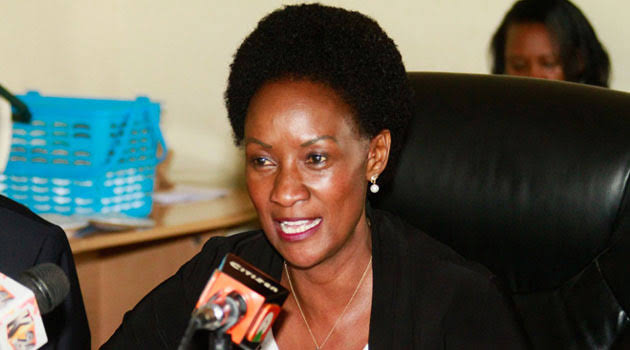Dr Nancy Macharia’s time at the Teachers Service Commission is ending in a cloud of controversy, and many teachers across Kenya seem more than ready to see her go.
After serving as CEO for nearly ten years, Macharia will took a terminal leave in March 2025 ahead of her official exit in June.
While she was the first woman to lead the commission and had impressive academic qualifications, her time at TSC is mostly remembered for conflict, discontent, and an uncomfortable leadership style that left many teachers feeling sidelined and ignored.
Teachers have already started planning celebrations for her exit, and that says a lot about the level of frustration and bitterness her leadership has caused.
Throughout her tenure, Macharia pushed performance appraisals and paperwork systems like TPAD, which many teachers argued interfered with real teaching. Instead of focusing on improving education in the classroom, the TSC under her watch forced teachers into a cycle of endless forms, evaluations, and data submissions.
This took time away from learners and made many feel that the Commission no longer understood or cared about what really mattered. It became more about ticking boxes than shaping young minds. The result was a demoralized teaching force that struggled under unnecessary pressure and bureaucratic micromanagement.
Critics say Macharia led using a “divide and rule” approach. She allegedly tried to control the teaching sector by creating divisions among different teacher groups, keeping them too scattered to mount a united front.
Teachers’ unions often found themselves locked out or undermined, leading to even more chaos.
Her unwillingness to engage with teachers and respond to their complaints only made things worse. Reports also pointed out that she appeared cold and distant, choosing to communicate through policies and memos instead of real dialogue.
One of the biggest scandals in her time was staying in office past the legal retirement age. By law, she should have retired at 60, but she continued working, raising serious legal and ethical concerns.
In July 2024, MP George Gitonga Murugara demanded answers in Parliament, asking why she was still earning a salary and why no action had been taken. This only added fuel to the fire, with many teachers calling her continued presence a show of impunity.
What stands out most is how teachers are reacting to her exit. Celebrations are being planned online and in person. Groups like “Wadau Wa Elimu” are even organizing goat-eating parties to mark her departure.
These are not small farewell events. They are open displays of relief from teachers who feel they’ve finally been freed from a decade of poor leadership.
It’s rare to see such public excitement over someone retiring from a top job, but in this case, it speaks volumes. Teachers are not just saying goodbye they are reclaiming their space and their profession.
Even though Macharia achieved some milestones, like securing funding from the World Bank and receiving national honors years ago, those achievements have been drowned out by the negative memories she leaves behind.
Her public image may include titles and degrees, but within the education sector, her name has become a symbol of frustration.



